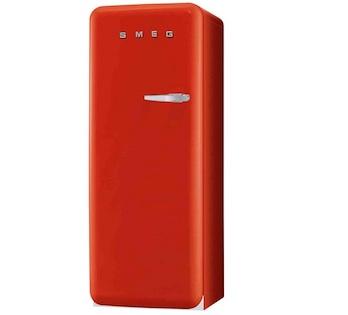The humble refrigerator has come out on top as the best household innovation of our time, outstripping the internet, air conditioning and the microwave, according to new research released today.
The inaugural Procter & Gamble Home Innovation Index asked participants to rank a list of the 20 most common innovations in the home.
A cross section of over 2,000 Australian parents were asked to nominate the innovations thought to have made the biggest contribution to their busy lives, and the innovations they couldn’t live without.
The top three innovations were the refrigerator (74%), the washing machine (71%) and the television (59%).
The ability to make life easier and save time were the two most common reasons given for why these innovations were at the top of the list. Least popular were games consoles (12%) and hair straighteners (7%).
Collett Smart, psychologist and the Director of Family Smart, says that the focus on time-saving innovations reveal the pressures felt by modern Australian families.
“The innovations in the home that are the most meaningful are those that save parents time or make everyday tasks, like washing clothes, easier. With so much going on in our busy lives, it’s no surprise that parents want to minimise the time they spend on household chores and view the value of innovation in that way,” says Collett.
“This survey is a litmus test for modern life. We are no longer spending hours scrubbing the floors or doing the washing, because our focus is on enriching the lives of our families to give them the best start in life,” says Collett.
Procter & Gamble (P&G) is the company behind many of the home innovations that make life easier, like the disposable nappy, soap for washing machines and house-hold detergent. Furthermore, over 80% of Australian’s have a P&G product in their home.
Ana Lombera, Consumer Research Senior Manager for P&G Australia and New Zealand, says, “Australians are down-to-earth, practical and no-nonsense. As the primary grocery buyers, mums want products that work well and work the first time so they can move on to the things that matter most to them – like spending time with their families.”
Interestingly, when it comes to the best ever beauty innovations in the home, antiperspirant deodorant was the number one choice of the women surveyed (68%). Hair conditioner was ranked number two (42%) followed by the razor (39%). The least popular beauty innovations in the home were fake tan (4%), the foot spa (5%) and hair removal strips (12%).
“It is difficult to imagine life without these necessities and after 175 years, P&G will continue to introduce household innovations in 2014 as a result of over $2 billion spent annually on research and development. Our aim is to make day-to-day living more enjoyable for Australian parents,” says Ana.
Interestingly, the disposable nappy was ranked an important innovation by almost double the number of mums (23%) than dads (12%).
“Latest research suggests that men generally spend more time in paid employment, while women typically take on five or more hours of unpaid childcare and domestic duties, which might explain why women prioritised products, like disposable nappies, that are more about fulfilling family and childcare needs ahead of her own,” says Collett.
“However, it is interesting that wireless internet is one of the best innovations ranked by both mums and dads. With more parents working longer hours and as flexible work arrangements become more commonplace, staying connected is necessary for busy working parents who want to maximise their productivity without spending long hours at the office. The internet also has a primary role in children’s education, making it more of a requirement than in previous generations,” says Collett.



















__small.png)










